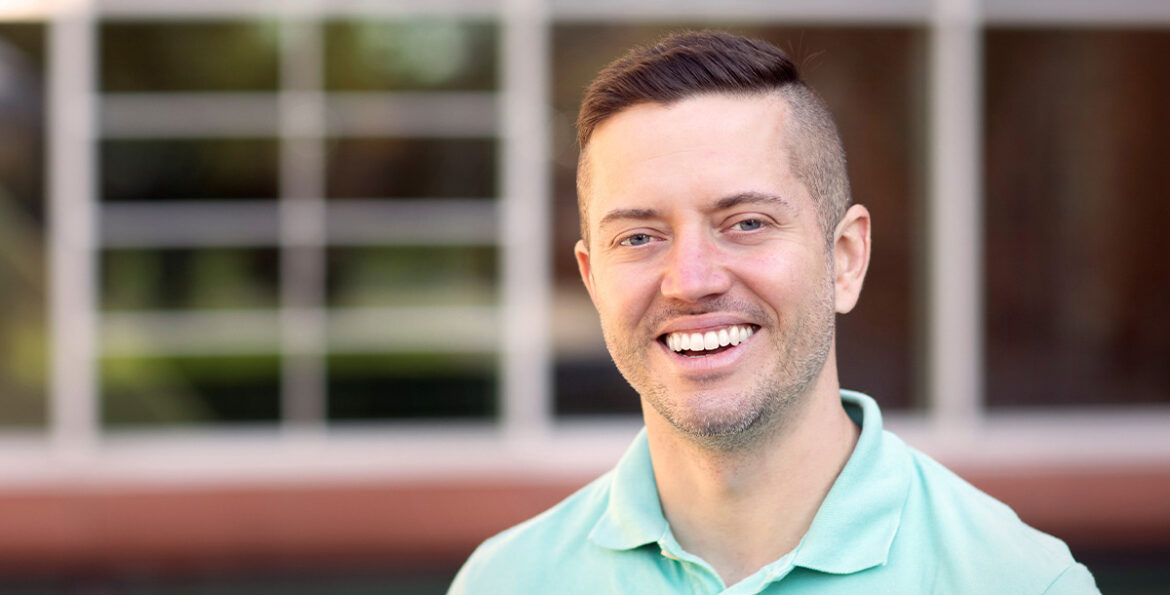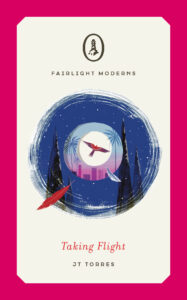
- Home
- Interviews & Blogs
- JT Torres Interview

JT Torres Interview
- 7th July 2021
- Category : Interviews & Blogs
JT Torres is the author of Taking Flight, a Fairlight Moderns novella publishing on 8 July 2021. This novella is a beautifully told drama of the bond between grandson and grandmother which delicately explores the complexities of family bonds. Read this interview to find out what inspired this novella.
 How did you start writing and what does writing mean to you?
How did you start writing and what does writing mean to you?
I cannot remember a time when I was not writing. Even before I could write, I found ways to collect my thoughts into some kind of organized presentation. Of course, as a child, this “organization” was largely scribbles and stick-figures, but I could at least “read” them, even if I was the only one who understood the markings.
We often hear “write what you know,” and that’s fine, but I have been better served by the idea to write what you don’t know. I treat writing as a method of inquiry, of writing myself into the world as an attempt to understand it.
Did you always want to be a writer?
I wouldn’t say I always wanted to ”be” a writer; rather, I always knew I would “be” a writer. There were moments when I did not want to be a writer. My family often tried persuading me to direct my interests towards something more “profitable.” Many times, I was lured by assurances that an interest in computers or math would result in a nice house, plenty of vacations away from the nice house, and pretty much anything else I could want, except being a writer, which I knew I had to be. My family could not find a way around that paradox.
If you could describe Taking Flight in one word what would it be?
Nana
Was there a particular part of the story that you found difficult to write?
This story was one of the easiest stories I’ve written. Everything seemed to flow right out, as if the story had been alive long before I could write it. This is definitely not the norm. I have to trudge through most of my writing, like wading through a swamp.
Taking Flight has elements of Cuban folklore, how did you come to include this in your writing?
My scholarship focuses on religious practice, identity, and attributes in Cuba. I spent many years working with an arts-based ethnographic team traveling to Cuba and West Africa. The team explored the sharing of religious and artistic traditions within the violent history of slavery that shaped Arará culture in Cuba. I recently co-authored a book with Jill Flanders Crosby entitled Situated Narratives and Sacred Dance that presents more than a decade of research into the sacred history, mythology, and politics of Arará.
What inspired you to write Taking Flight?
My grandmother used to tell me stories of her life in Cuba, before she had to migrate to America. According to her stories, she left behind an extraordinary life for the mundane one she assumed in America. She went from dancing with spirits to working retail. I enrolled in an MFA program to spent time writing a novel about her fantastical stories—stories my mom always reminded her were “lies.” The day of my MFA thesis defence, my grandmother passed away. I spent the next two years converting the thesis into a publishable novella.
What’s the most surprising thing you’ve learned from writing Taking Flight?
How fiction and nonfiction are quite arbitrary categories.
What’s your favourite book and who is your favourite author?
Ishmael by Daniel Quinn is my favourite book. Isabelle Allende is my favourite author.
Do you have a writer’s habit that helps you ‘get in the zone’?
I have to disconnect from the rational, logical mode of thought that enables survival in a highly “efficient” society. Disconnecting might mean literally unplugging from the internet, but it also means shaking myself out of a Newtonian mindset. I have to play, do something silly, dress like a unicorn, get lost in the woods, cook foods I’ve never cooked before, not following a recipe. Anything to remind myself what it is like to wander and wonder.
Do you have a writing schedule?
Step 1: Call in sick to work. Step 2: Feel guilty about calling in sick while not really being sick. Step 3: Tell myself the only way to not feel guilty and “enjoy” this day I have cheated for myself is to write. Step 4: Write.
Where do you tend to write?
I actually try to avoid having a “writing” space, even though I do have an office with a writing desk. I like writing in new places—new coffeeshops, places on campus I haven’t visited in a while, parks, or plazas. My thoughts are quite place-bound, and I often find new perspectives when I literally change my setting.
What do you hope people take away from reading your book?
Their money’s worth.
What’s a piece of advice you can give to aspiring authors?
Do not worry about rejection. Seriously. Writing is rejection. No matter how established of an author any of us might become, rejection is ubiquitous. I recently read a negative review of Richard Powers’ Overstory. And not just a critical review that raised important questions about the novel—I read those too and agreed with many of them. What I am talking about here is a straight up review that claimed Overstory was a “bad book.” Really? If someone out there can reject Overstory then, yes, we will all be rejected.
Read more about Taking Flight here.
You can find out more about JT Torres here.














